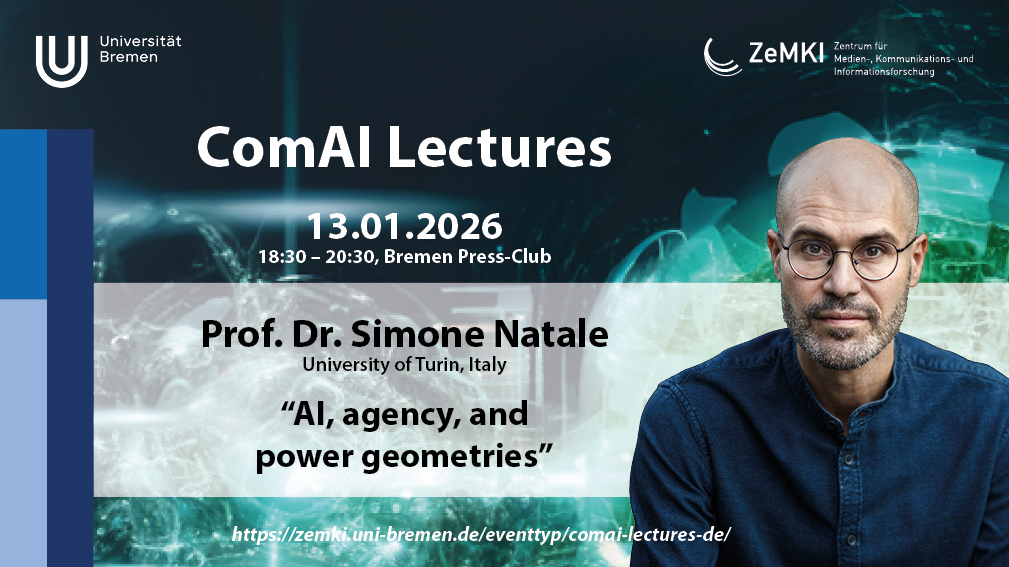
Prof. Dr. Simone Natale (University of Turin): AI, agency, and power geometries
- Datum: 13. January 2026
- Time: 18:30
- Street: Schnoor 27
- Location: Bremer Presse-Club
Abstract
One of the paradoxes of AI is that it is a global phenomenon, but at the same time, it is always situated in specific, local contexts and cultures. While approaches that aim to study local cultures of AI are important, there is the risk of neglecting their insertion within the broader geographies and politics of AI. As a response to this challenge, this talk mobilizes the concept of power geometries, originally proposed by feminist geographer Doreen Massey, to the case of AI. Reframing the global dimension of AI in terms of power geometries helps locate these positions in the complex networks of relationships between different actors at global level. The power geometries of AI follow the lines and inequalities of the relationships between Global North and Global South, between colonizers and colonized, but also between diverse actors at different scales, such as governments, policymakers, corporations, designers, workers, and users. While all media can be examined in terms of power geometries, the power geometries of AI are characterized by the issue of agency. The reconfiguration of the question of agency sparked by AI, in fact, has generated new kinds of structures and trajectories underpinning AI’s power geometries.
Bio
Simone Natale is an Associate Professor in Media Theory and History at the University of Turin, Italy, and Editor of the journal Media, Culture & Society. Before returning to work in Italy in 2020, he has lectured and researched at institutions including Columbia University, US, Concordia University in Montreal, Canada, Humboldt University and the University of Cologne in Germany, and Loughborough University in the UK. He is the author of numerous publications including his monograph Deceitful Media: Artificial Intelligence and Social Life after the Turing Test (Oxford University Press, 2021), which has been translated into Chinese, Italian, and Portuguese, and around 50 peer-reviewed research articles in journals such as New Media and Society, Journal of Communication, Communication Theory, Information, Communication & Society, and Communications of the ACM. He has been awarded research grants by institutions including the AHRC and the ESRC in the UK, the Humboldt Foundation in Germany, and the Ministry of University and Research in Italy, and has worked as expert on AI for leading international institutions and projects such as the Global Partnership for Artificial Intelligence (GPAI) and the Brookings Institution’s Global Task Force on AI in Education.

